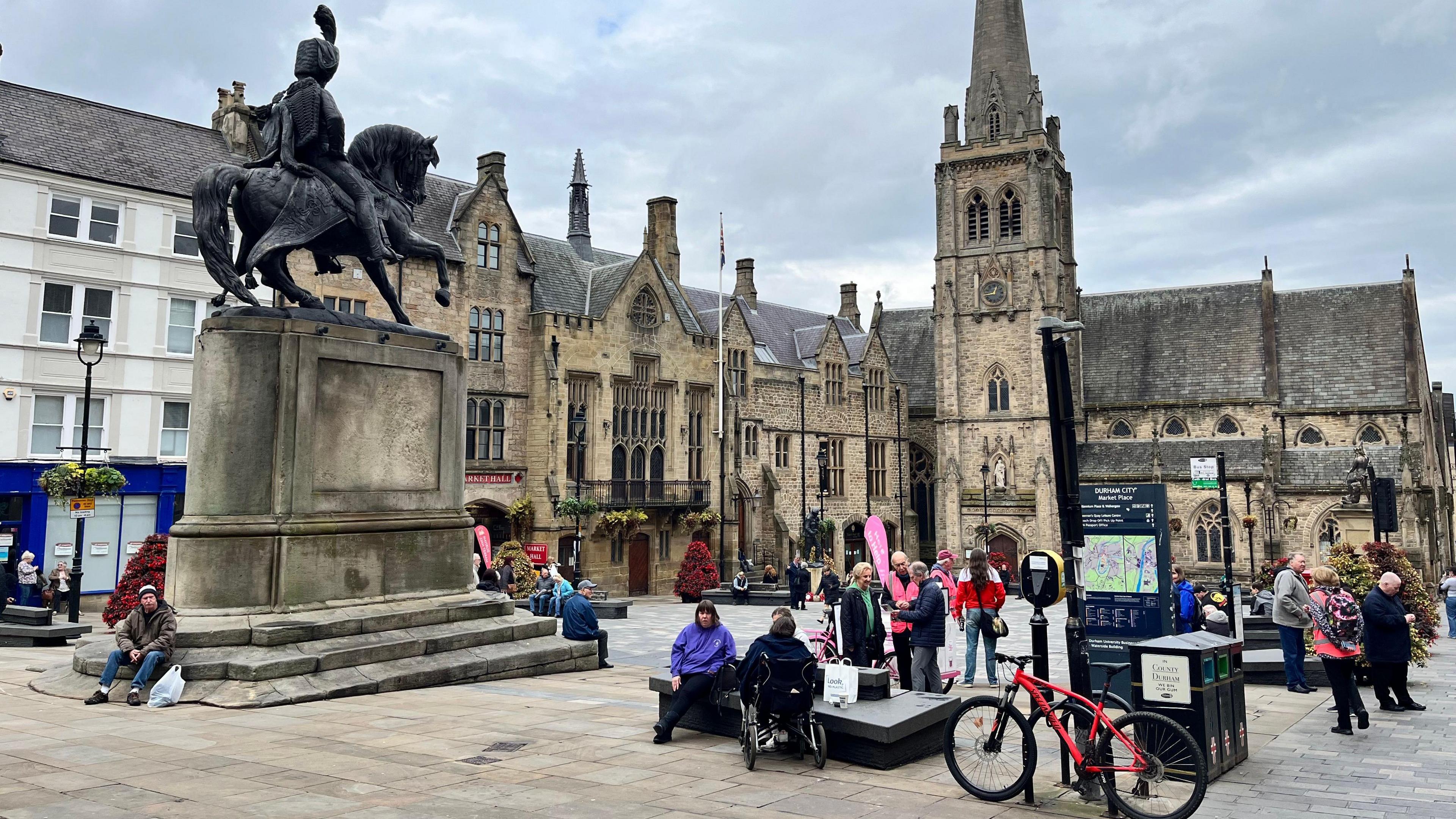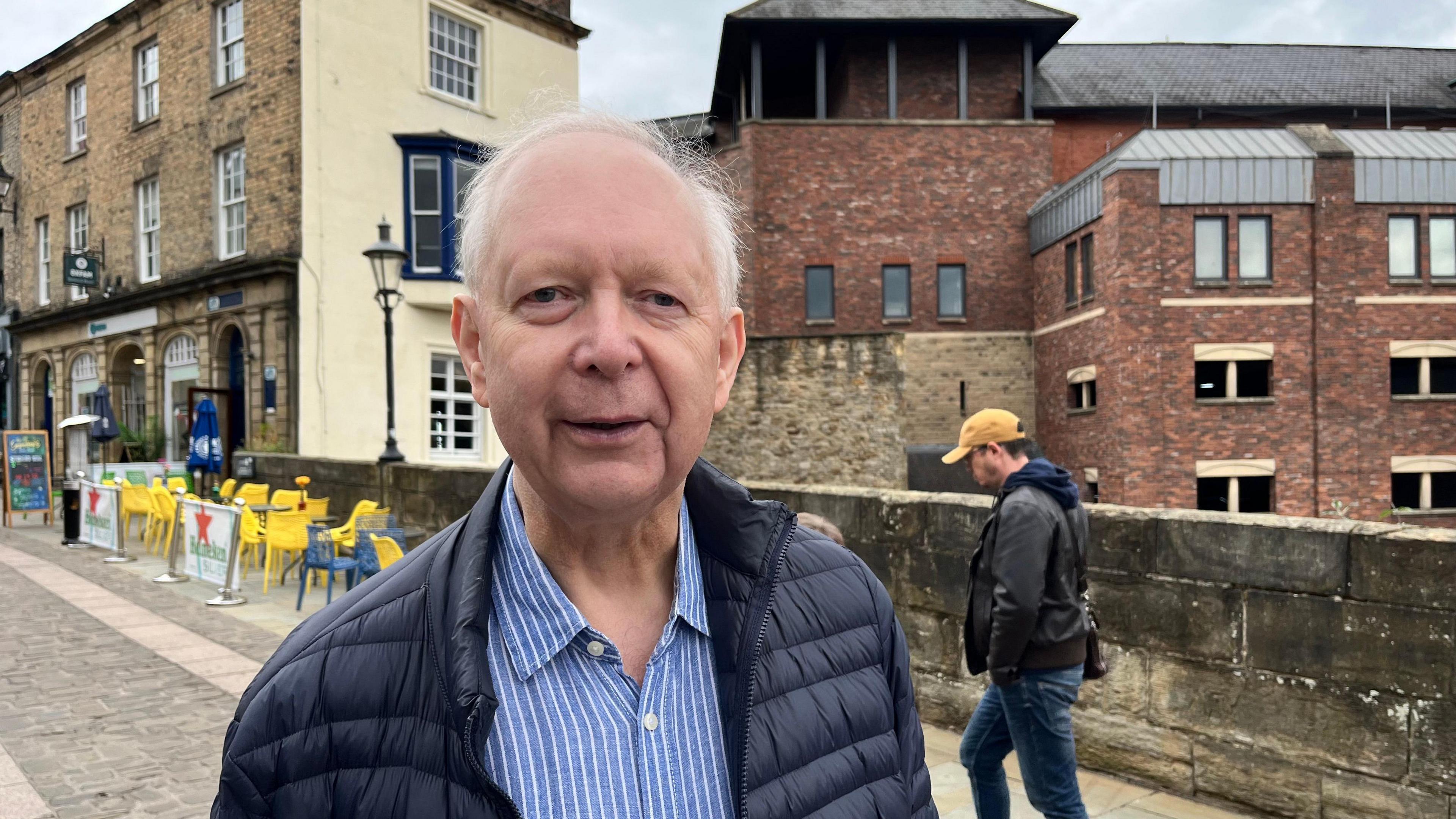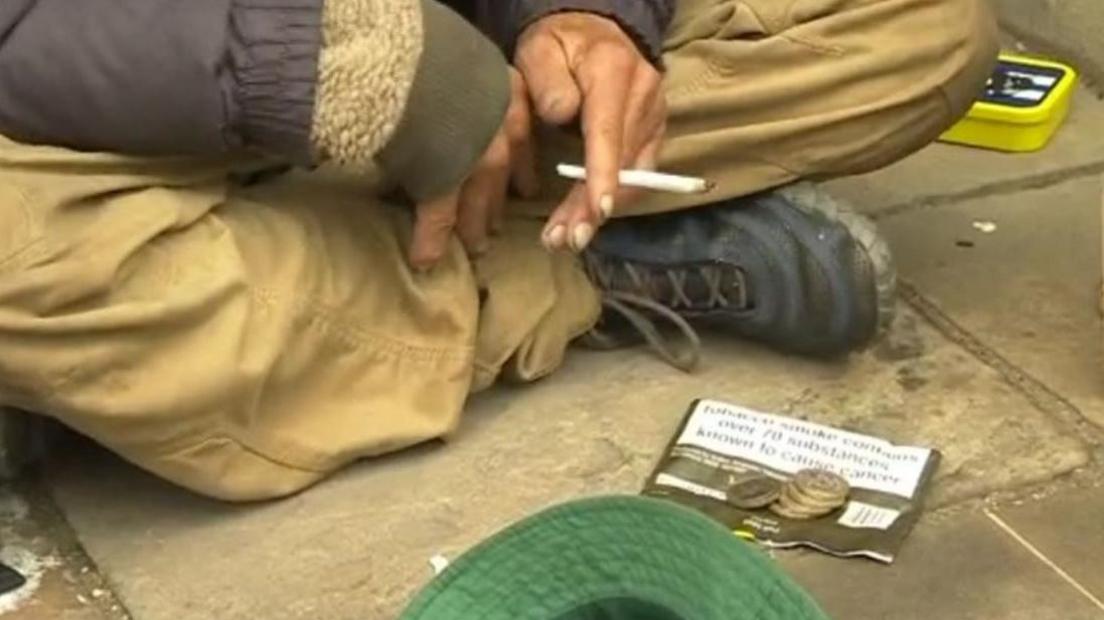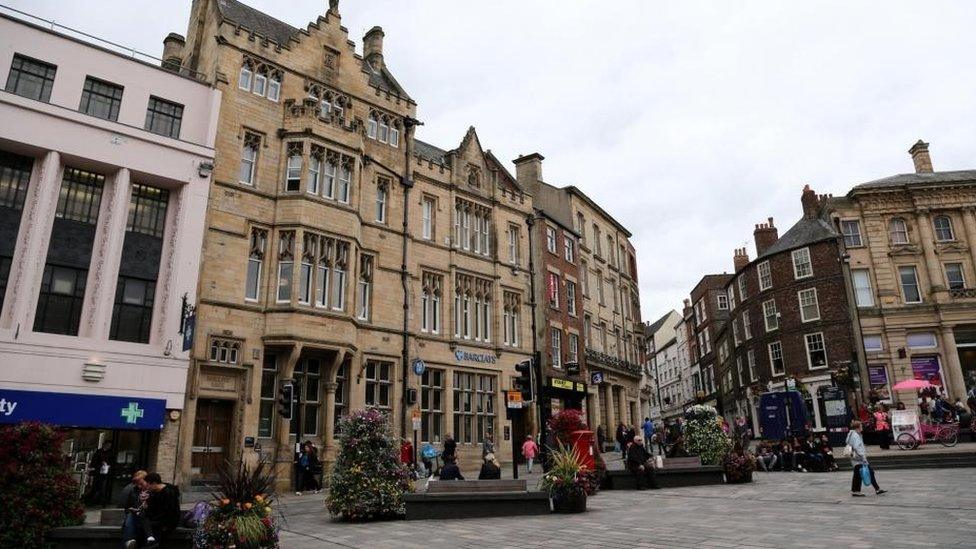Anti-social bans 'criminalising poverty' claim

The county council wants to tackle begging and anti-social behaviour in Durham city centre
- Published
A civil rights group has claimed anti-social behaviour banning orders brought in by some local authorities are "criminalising" those living in poverty.
The charity Liberty said public space protection orders (PSPO) introduced to tackle drinking on the street and begging were not dealing with wider social issues.
Earlier this month Durham County Council approved a ban on nuisance behaviour in the city centre.
Liberal Democrat council leader Amanda Hopgood said it would have to find a balance between addressing the long-term problems associated with anti-social behaviour and making sure people felt safe in the city centre.

University students Hannah Cathcart (left), Caragh Puttick (centre) and Lydia Campbell want people to be treated with "compassion"
Under the new rules, those caught indulging in anti-social behaviour, including urinating in the street, could be fined up to £100.
Jodie Beck, Liberty's policy and campaigns officer, said the orders were a "sticking plaster".
She said: "We've seen authorities over the past 10 years, especially in the North East, using PSPOs to prohibit activities like begging, sitting in doorways and putting up tents.
"All of these behaviours are related to poverty and homelessness.
"So using the orders to address them means local authorities are effectively criminalising poverty."
Speaking on BBC Politics North, Hopgood said: "I absolutely agree that we have to tackle the issue with regards to homelessness and poverty.
"But some of the behaviour that we see on the streets of Durham makes other people feel unsafe."
She added: "The whole point of this is not to give people a criminal record because currently the only legislation in place is for people to be arrested."
'Managed sensitively'
Professor Ed Snape, a former student at Durham University, said it was a sensitive issue.
He said: "I can see it from both sides and it needs to be managed sensitively.
"People aggressively begging or being sick in the street is a nuisance and there needs to be some way of dealing with that."
Speaking to the BBC, several Durham University students said that homeless people needed to be treated with "compassion".
Hannah Cathcart said she and her friends were "privileged" to be at university and "financially comfortable".
"It is a different type of playing field for other people, it can be quite hard for some, and that needs to be taken into consideration," she said.

Ed Snape believes the issue needs to be managed "sensitively"
Durham County Council's director of neighbourhoods and chair of the City Safety Group, Alan Patrickson, defended the ban on nuisance behaviour in the city centre and said he wanted the city to be "friendly, welcoming and safe".
More than 400 responses were received during a six-week consultation on the council's proposals earlier this year, with 83% in favour of the orders.
Durham Markets Company, the police and crime commissioner and Durham Police also backed the move.
Mr Patrickson added: "Following concerns being raised around certain behaviours, PSPOs will help us to take appropriate action and tackle these issues.
“They will be used alongside a wide range of support and education measures, ensuring that people are offered the support they need."
Last year Stockton Borough Council introduced the orders in Stockton and Norton town centres.
The council's cabinet member for regeneration and housing, Nigel Cooke, said visitors were being put off and the problem needed to be tackled to give "businesses confidence and reassure the public".
Follow BBC North East on X (formerly Twitter), external, Facebook, external and Instagram, external. Send your story ideas to northeastandcumbria@bbc.co.uk.
- Published21 September 2024

- Published11 September 2024

- Published7 March 2024
